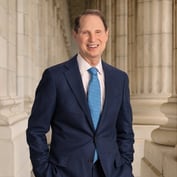When I was a kid, one of my favorite things to read was the JC Penney catalog. Every time it arrived in our mailbox, I’d wait and wait for my mom to finish and then squirrel it away to our basement playroom.
The housewares section was a fave — I was partial to gaudy, over-the-top drapery sets, which to 6-year-old me, were the pinnacle of elegance — but the toys section was the real must-read. I’d painstakingly earmark the pages containing toys I wanted — which was all of them except that nightmare-inducing ventriloquist doll — and then casually turn the book back over to my mom, hoping she’d get the hint.
It was probably the last time I ever felt that crazy about JC Penney … or, really, any department store. But when JCP’s CEO — a former Apple exec — announced a brand overhaul a while back, I felt a tiny bit of that excitement return. Straight-forward pricing? Designer capsule collections? Target-esque ad campaigns? It all sounded good to me.
But I finally made it into a JC Penney recently and found a store that was … exactly the same. Same beige walls and tile floors. Same racks of elastic-waist leisure pants and shoulder-pad blouses. Same mildly disgruntled staff, gossiping about co-workers in the corners. The only noticeable changes were a couple racks of trendier clothes, a few bigger signs touting the prices and an entire floor that had been roped off for remodeling.
Talk about Let-Down City. I’d walked in expecting something bright and friendly, an Apple store for cheap clothes, and ended up in a shabby shop that hadn’t changed since the 1980s. It didn’t surprise me, then, when the company posted a giant loss in its latest earnings report, with sales in the fourth quarter of 2012 — which included the holidays — down 28 percent.
What’s JCP doing wrong? And what can other salespeople, including life agents, learn from it? Well, plenty — I could launch into lessons on branding (it’s more than designing a logo, guys!), target markets, and the timing of re-launch rollouts. But it all boils down to one very important lesson: keep your promises.
JC Penney certainly hasn’t. The company’s new logo, ads and capsule collections promise a shopping experience geared toward young, budget-conscious-but-trendy shoppers. But walk in past the store’s three racks of cheap-chic clothes and JCP transforms from an H&M wannabe to that place where my frugal aunt gets her Velcro shoes.
JCP originally promised low, everyday pricing — no sales gimmicks or coupons. When customers complained, though, it quietly went back on its word. Yet large signs touting consistent pricing remain in the stores … right next to clearance racks.








 March 19, 2013 at 08:18 AM
March 19, 2013 at 08:18 AM










